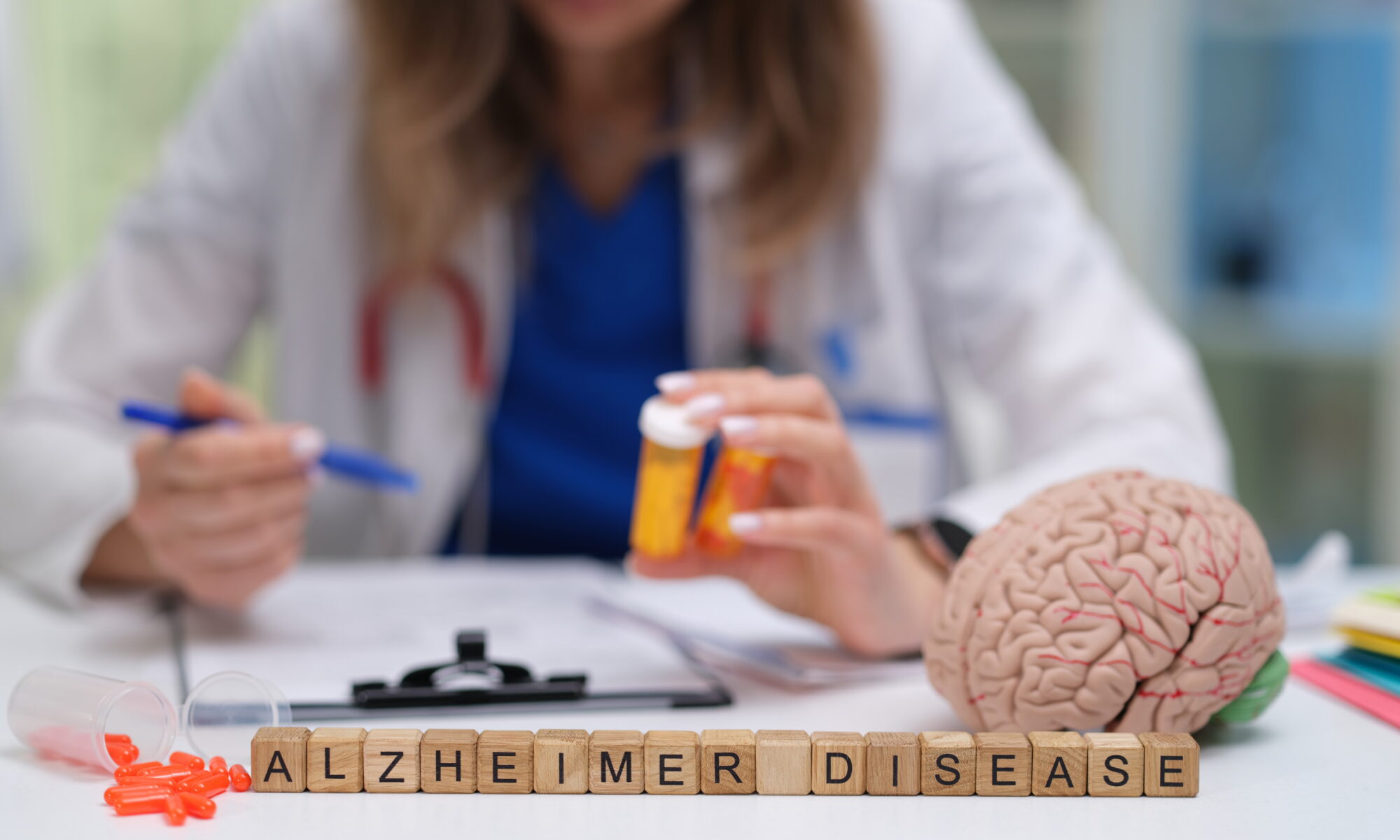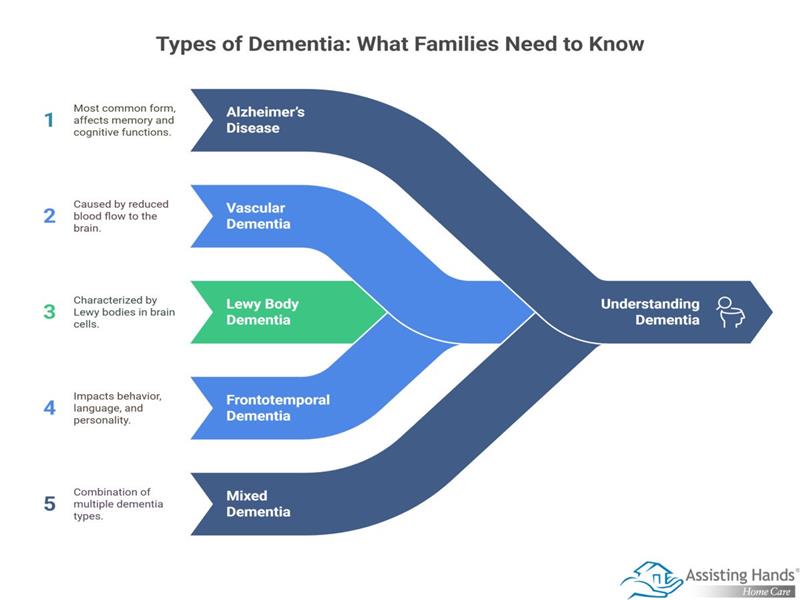
Table of Content
Dementia is a term used to describe a range of conditions that affect memory, thinking, and behavior. While often associated with aging, dementia encompasses several distinct types, each with its own causes, symptoms, and progression patterns. Understanding these types can help seniors and caregivers better prepare for managing the condition and seeking appropriate care.

Alzheimer’s Disease
Alzheimer’s disease is the most common form of dementia, accounting for approximately 60 to 80 percent of cases. It is a progressive neurological disorder caused by abnormal protein deposits in the brain, leading to the death of brain cells.
Key characteristics of Alzheimer’s disease:
- Memory loss – Early stages often involve difficulty remembering recent events or conversations.
- Cognitive decline – Over time, seniors experience challenges with problem-solving, language, and decision-making.
- Behavioral changes – Anxiety, depression, and mood swings are common symptoms.
Treatment for Alzheimer’s focuses on slowing progression and managing symptoms through medications like cholinesterase inhibitors, lifestyle adjustments, and therapy.
If your senior loved one has been diagnosed with a serious condition and needs help with tasks like meal prep, transportation, bathing, and grooming, reach out to Assisting Hands Home Care, a leading provider of senior care families can trust. We also offer comprehensive care for seniors with dementia, Alzheimer’s, and Parkinson’s.
Vascular Dementia
Vascular dementia occurs when reduced blood flow to the brain damages brain cells. It’s often caused by strokes, small vessel disease, or other conditions that block or narrow blood vessels.
Key characteristics of vascular dementia:
- Sudden onset – Symptoms may appear abruptly after a stroke or another vascular event.
- Impaired judgment – Decision-making, organizational skills, and planning are often affected.
- Physical symptoms – Weakness or paralysis in some cases, depending on the location of brain damage.
Managing vascular dementia often involves addressing underlying cardiovascular issues, such as managing blood pressure, cholesterol levels, and diabetes.
Lewy Body Dementia (LBD)
Lewy body dementia (LBD) results from the buildup of abnormal protein deposits called Lewy bodies in brain cells. It shares some characteristics with Alzheimer’s disease and Parkinson’s disease.
Key characteristics of Lewy body dementia:
- Visual hallucinations – Seniors may see things that aren’t there, especially in the early stages.
- Motor symptoms – Tremors, stiffness, and other movement difficulties similar to Parkinson’s disease
- Fluctuations in abilities – Cognitive function may vary significantly throughout the day.
Medications for LBD focus on managing cognitive symptoms, motor issues, and mood. A multidisciplinary approach often benefits those affected.
There are a variety of age-related health conditions that can make it more challenging for seniors to live independently. However, many of the challenges they face can be easier to manage if their families opt for professional home care. Arlington families can rely on expertly trained caregivers to keep their loved ones safe and comfortable while aging in place.
Frontotemporal Dementia (FTD)
Frontotemporal dementia is caused by the degeneration of the frontal and temporal lobes of the brain. It typically occurs at a younger age than other dementias, often affecting individuals between 45 and 65.
Key characteristics of frontotemporal dementia:
- Behavioral changes – Dramatic shifts in personality, apathy, and loss of empathy can occur.
- Language issues – Problems with speaking, understanding language, and word recall
- Motor symptoms – Some seniors may develop movement-related challenges, although this is less common.
Due to its early onset, FTD can place unique challenges on families and caregivers. Management strategies include therapy, behavioral interventions, and tailored support plans.
Mixed Dementia
Mixed dementia refers to a condition where a person has two or more types of dementia simultaneously, with Alzheimer’s disease and vascular dementia being the most common combination.
Key characteristics of mixed dementia:
- Overlapping symptoms – The symptoms can vary depending on the types of dementia involved, making diagnosis challenging.
- Variable progression – Progression and symptom severity may differ based on the dominant type of dementia.
Treating mixed dementia often involves a holistic approach, combining strategies used for the individual dementias present.
Aging in place can present a few challenges for seniors living with dementia. However, they can still live independently at home with the help of professional dementia care. Arlington families can rely on Assisting Hands Home Care to provide their elderly loved ones with mental and social stimulation, timely medication reminders, assistance with meal prep, and much more. Our caregivers are available around the clock to help your loved one live a happier and healthier life. To hire a professionally trained caregiver for your parent, give us a call today.







